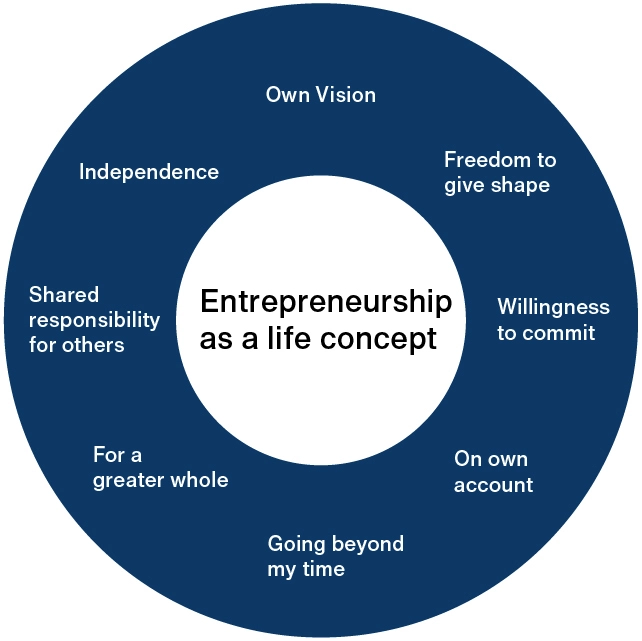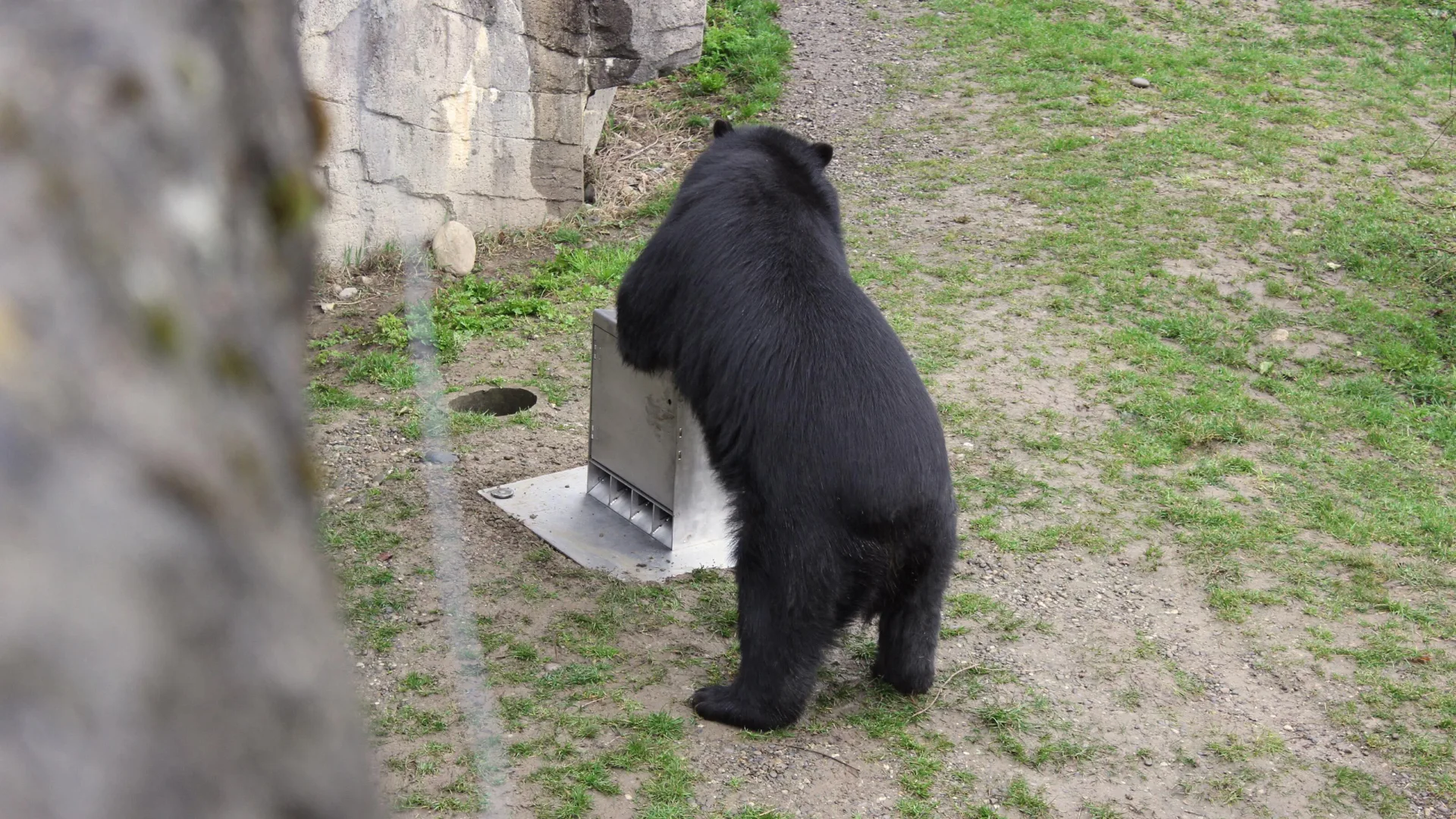Entrepreneurship - a life concept for everyone?
Entrepreneurship in the sense of "giving shape to things" does not only take place in the business world, but also in many other areas: The committed teacher, the ethical politician, the sceptical doctor, the pragmatic lawyer, the lateral-thinking scientist, the independent-mindedstudent - they all liveentrepreneurship.
Not all entrepreneurs live and practise entrepreneurship. Sometimes they only manage their company from the perspective of an investor.
Employees live and practise entrepreneurship, for example, when they are prepared to risk their jobs to address breaches of values or refuse orders that are in the interests of the management but not the company as a whole.

Curiosity over security
One could also posit that Homo curiosus is the citizen of a direct democracy. Indeed, the idea of democracy is based on the fact that every human being is an independent and unique individual who has a right to (co)determine their life and the structure of their community.
Aided by such concept as Maslow's pyramid and Homo economicus, the field of business management has nevertheless exceeded in consolidating a globally recognised image of a self-optimising person that is able to satisfy their need for security. This is despite the fact that the fields of sociology and psychology have in recent years described a completely different picture of human nature.
Psychology has proven that expectation determines 50% of the outcome. As such, if we assume that all of our employees are Homo economicus and not Homo curiosus, we will place them in structures that are contrary to their nature. We will try to control or manipulate them, for example through fear or approval. If they go on to behave like chickens in a battery cage, we then attribute it to human nature. Bears in zoos use feeding machines that reward curiosity with food, and even chickens are kept humanely. In the workplace, people with unfulfilled curiosity are offered anger management, antidepressants and motivational training.
The role-based organic organisation provides people with the basis for doing something for society, together and through the division of labour, without having to bend themselves out of shape. Instead, they are encouraged and permitted to live out their natural curiosity and creative drive.
To achieve this, we all have to “reprogram” ourselves to some extent. Unfortunately, in an attempt to protect ourselves from danger, most of us have absorbed no small amount of diffuse fear. Just one example:
Often, children are not shown how to deal with fire properly but are only instilled with a fear of fire. Instead, children should be demonstrated the benefits (heating, disinfecting, light) as well as the risks. The child should also be instructed in how to control fire and how to identify when it has become an uncontrollable danger.
Of course, if every time you simply say (with a fearful expression): “Go away, it's dangerous!”, the child will learn fear instead of the substance of the danger – and how to get it under control. As a result, it will be consumed by fear and will turn away unnecessarily. This has the effect of paralysing the creative will.
Even in the organic organisation, people will always need training in contexts that have otherwise been learned in a very one-dimensional manner. After the inevitable "why?", we must remind again of what we have all successfully mastered by the age of 2, because this is the only way of (re-)learning how to differentiate instead of making hasty judgements.

In our zoos, we build solar-controlled feeding machines for bears to stimulate their curiosity - and the chickens are also kept in a species-appropriate way. The humans, however, are given anxiety management, antidepressants and motivational training.
Children are often not taught how to handle fire correctly, but are merely instilled with a fear of it. Instead, children should be taught the benefits of fire (warmth, disinfection, light, fertiliser) as well as the risk of burns. The child should also be taught how to control fire and when it becomes an uncontrollable danger.
Of course, if you only say "Go away, it's dangerous!" with a fearful expression every time, the child learns fear - instead of the content of the danger and how to control it. As a result, they feel constantly afraid and have to avoid things. Their will to create is now paralysed.
In organic organisation, too, people constantly need orientation in contexts that they have only learned in a very one-dimensional way. This also includes asking "Why?" again, which we all mastered excellently at the age of 2. This is the only way we can learn to differentiate again instead of making hasty judgements.
Children are often not taught how to handle fire correctly, but are merely instilled with a fear of it.